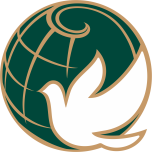The methodological Council is a collegial body responsible for organizing educational and methodological work of the University.
Educational and methodological work is carried out in accordance with the strategic plan of the University.
In order to explain the generalization and dissemination of best practices for organizing and improving educational and methodological work and the introduction of new educational technologies, the University has developed a work plan for methodological advice to young teachers for the 2021-2022 academic year. Almost all works of this grade were covered in the plan of the methodological Council.
Main tasks of the council:
1) Organization of examination of working curricula and working curricula, taking into account the requirements of State mandatory standards of Education;
2) consideration and coordination of work plans of methodological councils of structural divisions;
3) Discussion and support of working curricula in individual subjects;
4) consideration of issues of methodological support for ensuring the educational process in educational organizations;
5) making proposals for improving regulatory legal acts related to methodological support in educational organizations;
6) Organization of textbooks, teaching aids, including in electronic form and didactic materials;
7) discussion of proposals for improving the list of educational specialists (professions) based on forecasting priority areas of production and scientific technologies;
8) consideration of the implementation of various forms of methodological work aimed at improving the educational process and providing practical assistance to teachers, educational organizations;
9) discussion and approval of working curricula in individual disciplines;
10) review and approval of the catalog of elective disciplines;
11) approval of prerequisites and post-requirements;
12) approval and approval of annual plans for the activities of methodological associations;
13) issues of development and examination of test tasks and other types for assessing students ‘ knowledge;
14) methodological support of independent work of students and independent work carried out with the support of the teacher;
15) Organization and holding of seminars, conferences, meetings on improving educational and methodological and scientific-methodical work.
